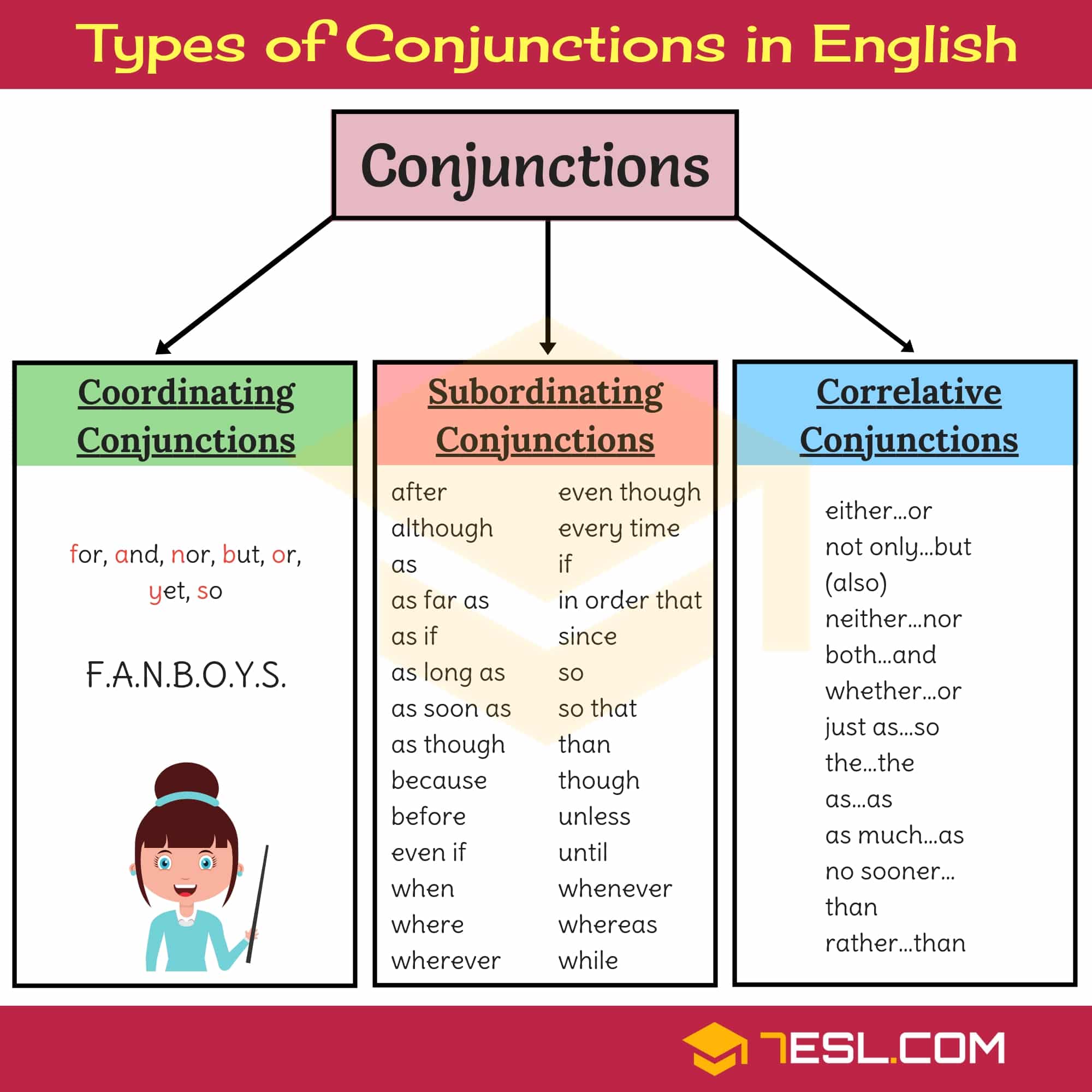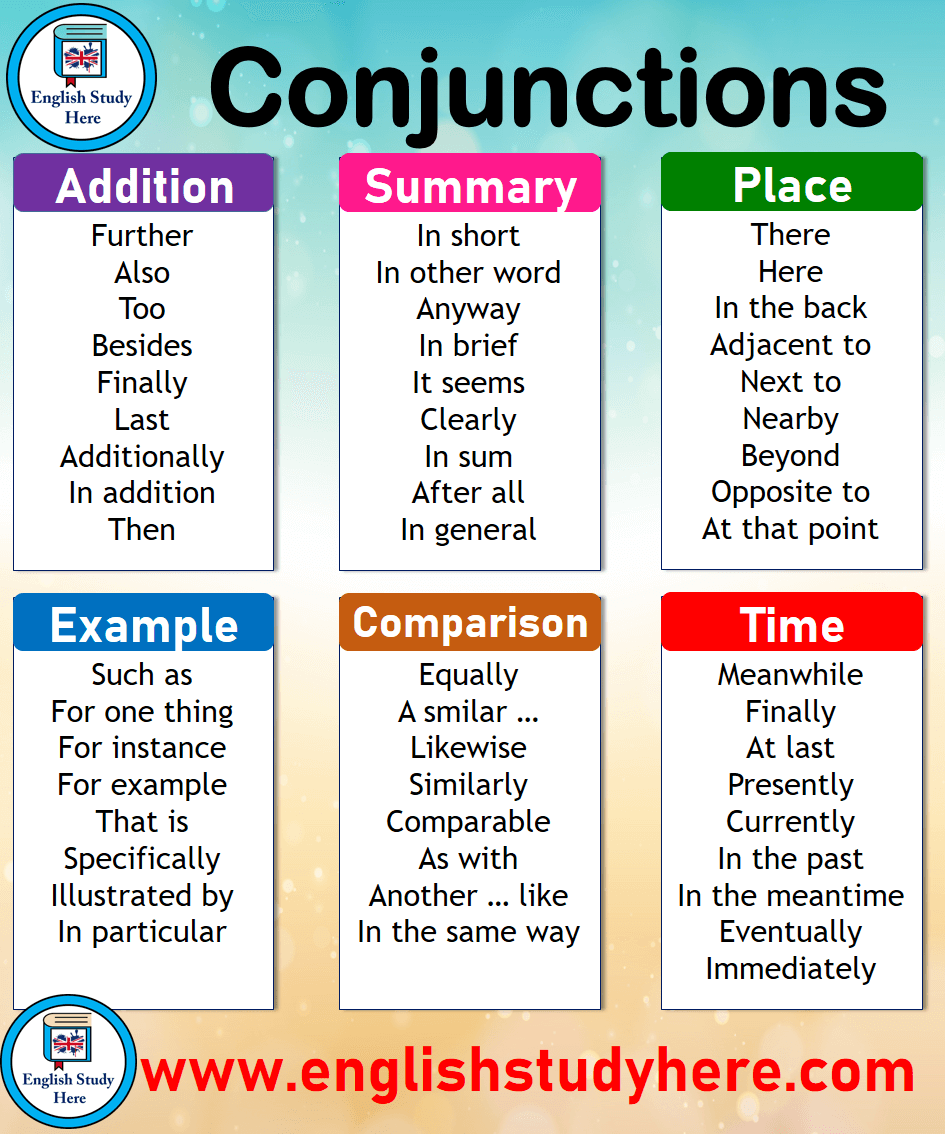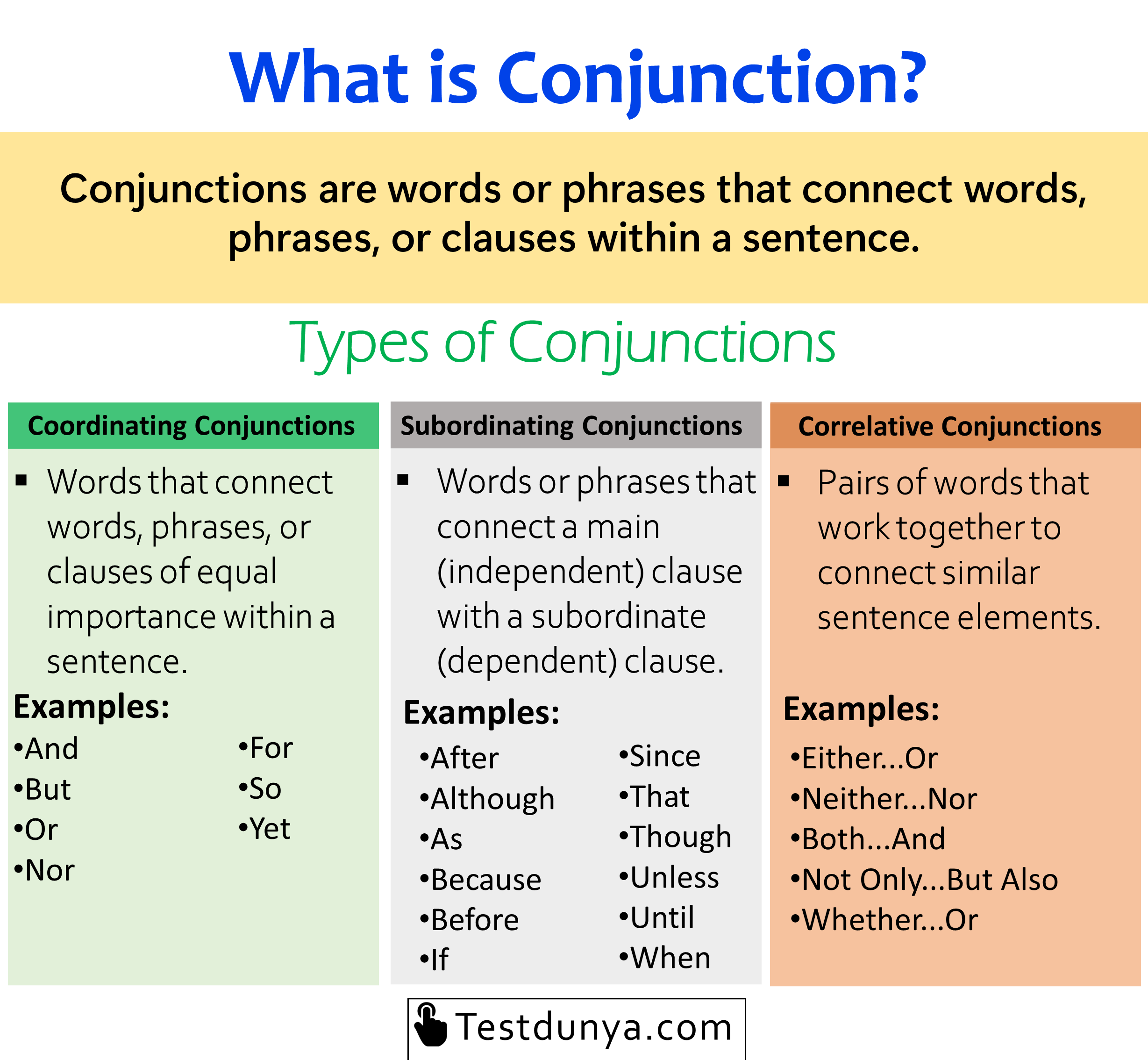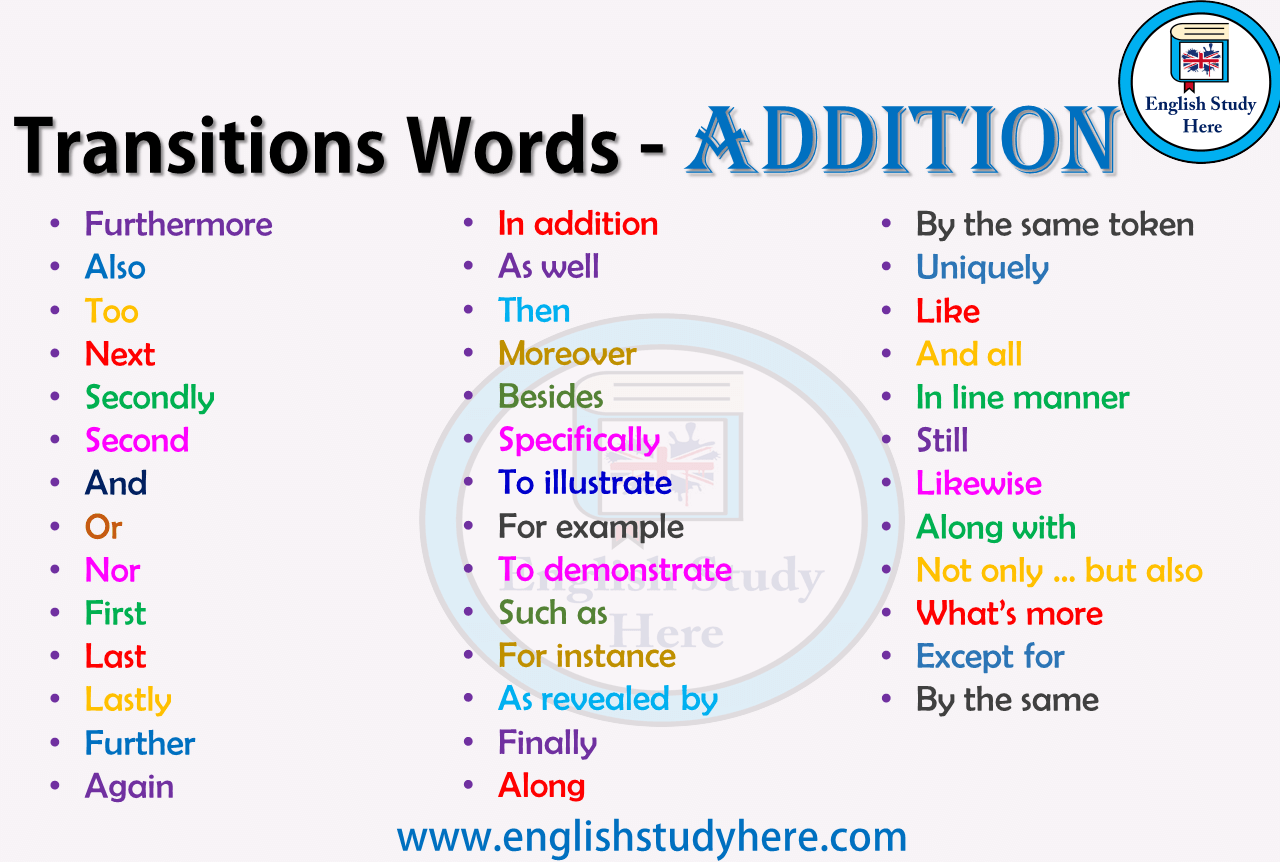
Conjunction and its Types GrammarVocab
CONJUNCTIONS → Addition. The conjunction and connects words and phrases that are linked in some way. E.g. • Sam and I will not be attending the meeting. The conjunctions both. and are used as a pair for emphasis. E.g. • Both the girls and I were eager to participate in the competition. Consider broadening your understanding by checking.

Conjunctions An Easy Conjunction Guide with List and Examples
Note that so can be a coordinating conjunction and a subordinating conjunction. That means it can link two independent clauses or an independent clause with a dependent clause. Correlative Conjunctions. Correlative conjunctions are pairs of conjunctions connecting phrases or words. We use them to make our flow of writing better and more concise.

Conjunctions List
The subordinating conjunction that is simplest to explain is because. Because is a conjunction with just one purpose: to show a cause-and-effect relationship between a subordinate clause and a main clause. On its own, a clause beginning with because is incomplete. Because he wouldn't wear a seat belt. We have the sense that there is something.

Conjunctions Sequence, Addition, Contrast English Learn Site
Subordinating Conjunctions. Subordinating Conjunctions join a dependent clause with an independent one. The dependent clause cannot stand on its own, but it lends an additional value to the independent clause. An important sub-type of subordinating conjunctions is Conjunctions of Time. Examples: Think a bit unless you have already made your.

Conjunctions, Definitions and Example Sentences English Grammar Here
Unless. Other Conjunctions. 1. We use "In addition or additionally" between two sentences. Our new director can speak three languages. In addition, he has six years of experience. Our new house is so close to the city center. In addition, it has four large bedrooms. Players in Ac Milan are all good footballers.

Types of Conjunctions with Examples • TestDunya
Subordinating conjunctions like "despite" and "although" are used to join independent and dependent clauses together. This is called a "complex sentence".. it just grants additional context and detail to the fact that Lady Penelope hated Sir Reginald's pranks. So, with that in mind, here are some of the most common subordinating conjunctions.

List of Conjunctions With Examples »
The basic purpose of a conjunction is to combine other parts of speech. Conjunctions can combine two basic words or clauses. You can also take two sentences and combine them into one sentence with a conjunction. There are three common types of English conjunctions: coordinating, subordinating and correlative.

Transitions Words ADDITION English Study Here
These are all coordinating conjunctions. Coordinating conjunctions are conjunctions that join, or coordinate, two or more equivalent items (such as words, phrases, or sentences).. There is a little bit of contention about this, but overall, most styles prefer to keep the additional comma (also called the serial comma). We discuss the serial.

Coordinating Conjunctions Coordinating conjunctions, Learn english
Updated on November 04, 2019. You can show addition in written English in a number of equivalent forms. This includes the use of, subordinating conjunctions, coordinating conjunctions, introductory words such as in addition, moreover, etc. which are known as conjunctive adverbs. Once you have mastered the basics of showing addition, continue on.

Conjunction Types, Rules, and Examples»
Conjunctions: Addition - Connecting Words: Adding Information, English transition words for adding information, definitions and example sentences; +50 Conjunctions, Definitions and Example Sentences In addition In addition means "too", "also", "besides". Example Sentence; In addition to French, she speaks Spanish. In addition fruit, you should eat meat. Too Too is an adverb. It.

Conjunctions in English Grammar Rules and Examples ESL Buzz
Common subordinating conjunctions are because, since, as, although, though, while, and whereas. Sometimes an adverb, such as until, after, or before can function as a conjunction. I can stay out until the clock strikes twelve. Here, the adverb until functions as a subordinating conjunction to connect two ideas: I can stay out (the independent.

10 example of conjunction in a sentence English Grammar Here
You'll find an easy to learn conjunctions list, separated by type below. For additional help, there are even usage examples of the different types of joining words in the English language. We've also included descriptions of each type of conjunction list, just in case there are any word groups you're not familiar with.

Detailed Conjunction List English Study Here
A coordinating conjunction is a word that connects two or more elements of the same grammatical type. The word coordinating refers specifically to bringing things together on the same level; this is what sets coordinating conjunctions apart from subordinating conjunctions, which join elements of unequal grammatical standing.

Conjunctions Addition Connecting Words Adding Information English
Addition Conjunction Words, Meaning and Example Sentences Conjunctions, a group of words like but, because, or, so, although, and though, are words used to bring other words and phrases together. Even though these words have no meaning on their own and their only meaning is in sentences, it would not be possible for us to construct complex or long sentences without conjunctions. Since it is.

Conjunction and its Types GrammarVocab
Here are some examples of coordinating conjunctions (shaded): The comment was blunt but effective. (The conjunction joins two adjectives.). (Here, the commas are offsetting "especially cheese and onion," which is just some additional information (called a parenthesis). So, the comma before "but also" has got nothing to do with correlative.

An Easy Guide to Conjunctions (with Conjunction Examples) • 7ESL
Conjunctions and linking words - English Grammar Today - a reference to written and spoken English grammar and usage - Cambridge Dictionary